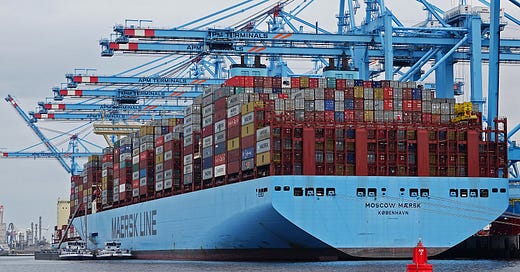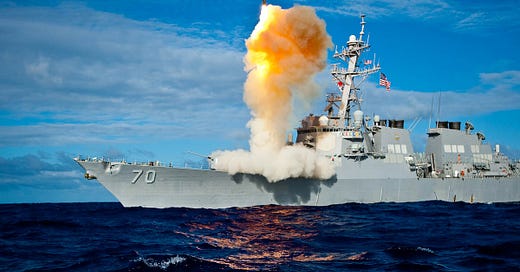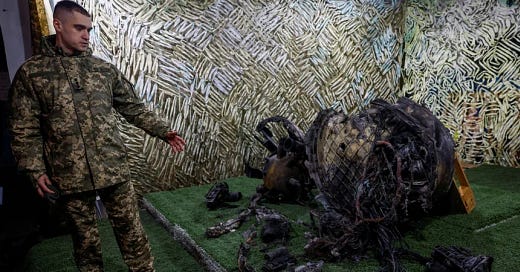
Discover more from Weapons and Strategy
While the world is focused on Israel and the Gaza war, the war in Ukraine continues. Vladimir Putin, Russia's leader, gave a brief press conference during his China trip, and from that we can conclude the following: firstly that the Russians are concerned about the use of the US ATACMS missile against Russian forces, and secondly that the Russians are worried about the arrival, probably around January, although no one is certain, of F-16 fighter aircraft. The Russians understand that the F-16s will challenge Russian air superior, at least to a degree, and complicate their operations.
Meanwhile on the ground the Russians are making some headway against Avdiivka, but the manpower and hardware cost is very high.
In effect the war has changed dimensionally. The Russians proved that its army could repel a Ukrainian offensive focused in the Zaphorize direction, and inflict heavy casualties on Ukraine. However, just as now that the Russians have started going on the offensive attacking strategic cities like Avdiivka, it is not so easy.
The same points about the land and air battle in Ukraine made by Putin were also made by his Defense Minister, Sergey Shoigu, in a conference with Russian army, air force and navy top brass.
The MGM-140 is a tactical ballistic missile with a range of around 300km. They were secretly shipped to Ukraine and first used against a large depot and airfield in Berdyansk. Unconfirmed reports say that the missile destroyed a significant number of Ka-54 Attack helicopters the Russians had been using in their operations against the Ukrainians in the Bradley Square area.
The Russians have relied on missile defenses and GPS jamming to defeat western supplied missiles. The ATACMS models sent to Ukraine were older types that rely on inertial navigation (INS) platforms and do not use GPS. INS units are made up of electrically-powered gyroscopes and don't need to connect to outside satellites or radio navigation systems. In practice this means that jamming won't work because there is nothing to jam. We don't know whether Russia had any air defenses protecting the Berdyansk area, and if they did have them, whether they fired them at the ATACMS missile. It is surprising that the Russians kept their attack helicopters so close to the zone of operations, where they were vulnerable to weapons such as Stormshadow, HIMARS and now ATACMS.
The Russians are not without their own nasty weapons. One of them, now being used in the assault on Avdiivka, is the TOS-1A, often described as a flamethrower. It is, sort of. The TOS weapons now being used is a multiple launch rocket system that has a thermobaric warhead and acts as a "fuel air explosive." A fuel air explosive creates a cloud of fine particles of fuel that then explodes, removing all oxygen from the impacted area and then burns, rather like napalm does. In fact, the Russians refer to these weapons as a "wall of napalm."
The Russians may choose to ignore growing casualties and press on as they attempt to straighten the border of the Donbas and secure the Zaphorize direction. As is now well known, Ukraine is running short on manpower. It is trying to step up drafting men "of military age" (now up to 60) to fill the gaps, but many are unwilling to fight. Ukraine has reported it has arrested thousands of young people trying to get across Ukraine's borders and escape conscription. How many succeeded isn't known. Ukraine has also pressured European countries, particularly Poland, to repatriate draft age Ukrainians. The Poles and others refused.
Ukraine also may face collapsing western support in terms of finance and military supplies. For the first time there is pushback. Europe is already in a recession and has drained its stockpiles. The US is heading in the same direction.
Speaking in China, Putin said that he is ready for talks with Ukraine's leaders, but Ukraine must repeal a law that blocks Zelensky and other Ukrainian officials from engaging in negotiations. Putin's remarks can be read in two ways, either challenging Ukraine to come to the negotiating table, or illustrating why Ukraine will not.
There are a number of interlocutors, other than any from the United States, who are willing to host peace talks. Most notably China and Turkey. Turkey is relevant in part because it is also a NATO member, but NATO has not proposed any talks with Russia and has cut off Russia from virtually all dialogue. Turkey, therefore, would be acting outside of the existing NATO consensus, although that too may be on the precipice of change.
Bakhmut was the first major defeat of the Ukrainian army. The failed Ukrainian offensive counts as the second defeat. Whether Ukraine can withstand a third battle at Avdiivka is not known, it probably can for a time but the cost may be fatal. Zelensky is facing a crisis that will grow as the fighting expands in Avdiivka and elsewhere.

















Thanks for your balanced coverage.
Bahkmut the first defeat? What were Mariupol and Lisichansk?